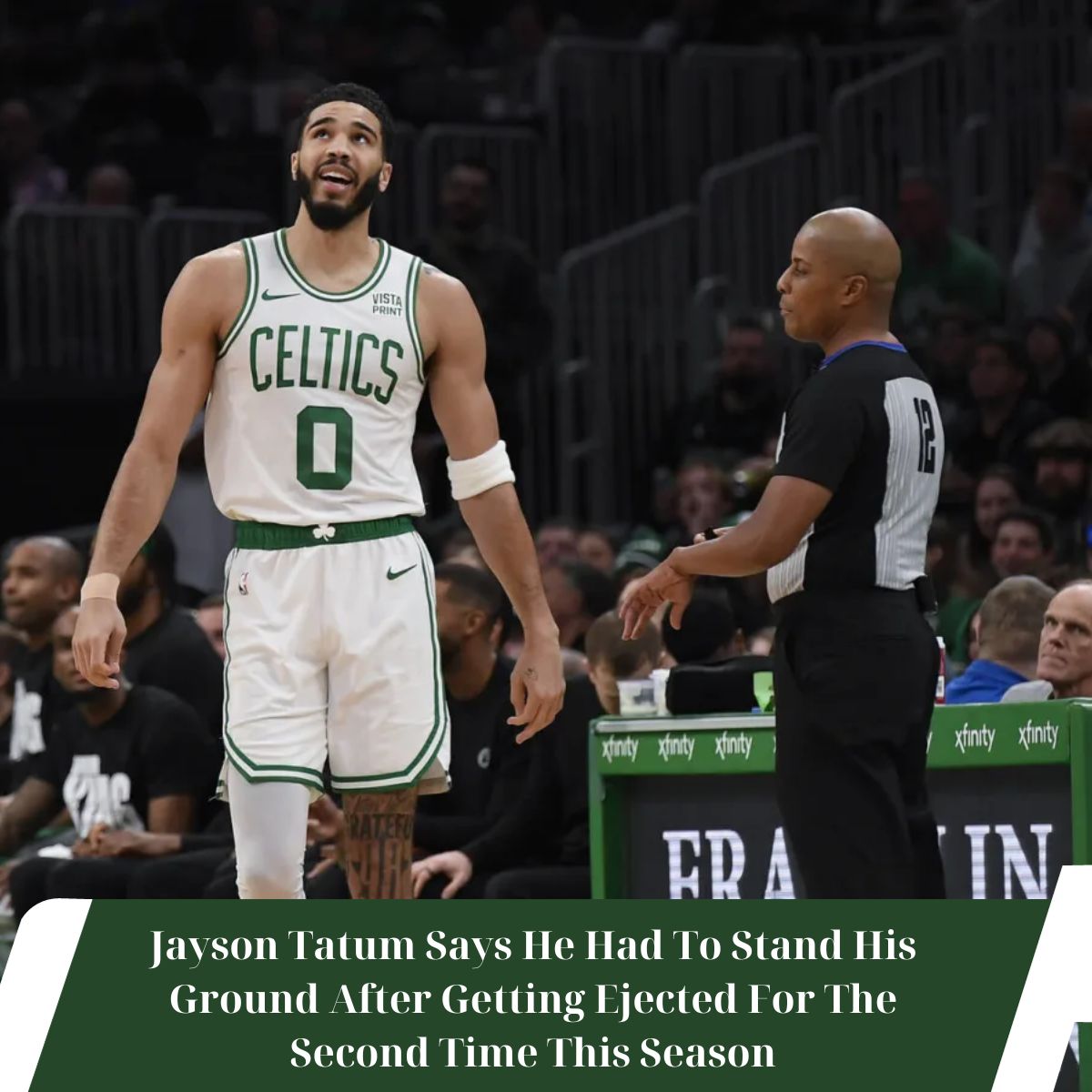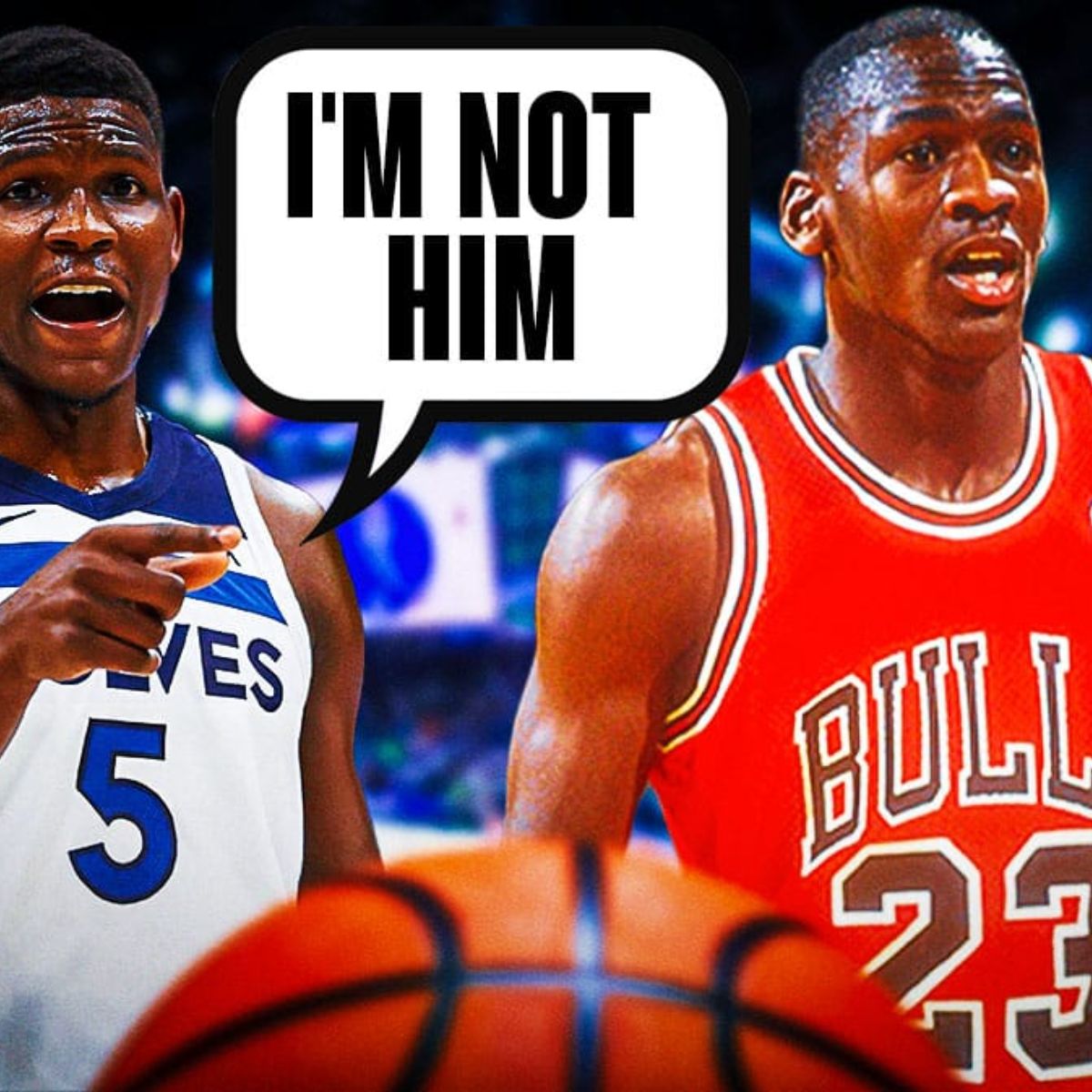Jayson Tatum, the star forward for the Boston Celtics, found himself ejected in the late stages of a dominant 145-113 victory over the Houston Rockets. Tatum, who had an impressive performance with 27 points, eight rebounds, and five assists, expressed his displeasure with the officiating, particularly highlighting two no-calls on his drives during the game’s closing moments.

In a post-game press conference, Tatum explained:
“I didn’t appreciate or like the no calls on those last three drives. I’m a very self-aware person. I understand the time and score, the game was pretty much over. Just had to stand up for myself, said my piece, got ejected, you know and that was it.”
Despite the ejection, Tatum’s contributions to the game were significant, shooting a remarkable 57% on three-pointers and showcasing defensive prowess with one block and one steal. His teammate, Jaylen Brown, also delivered an outstanding performance with 32 points, six rebounds, and impactful defensive contributions.
The Celtics, led by their dynamic duo, improved their record to 30-9, maintaining their position at the top of the Eastern Conference standings. Tatum’s ejection, though a consequence of his frustration with the officiating, did not dampen the team’s momentum as they secured a convincing victory.
As the mid-season point approaches, the Boston Celtics remain in a comfortable position but are aware that they must continue their strong performances to contend for an NBA title. The team is set to face the Toronto Raptors on January 15th, aiming to build on their success and solidify their standing in the competitive Eastern Conference.
The Officials Are Back At It Again
The frustration with officiating in the NBA has resurfaced as Jayson Tatum’s ejection from a game against the Houston Rockets reignites the debate around inconsistent calls. After a period where it seemed like the officials had eased up and let the players play, Tatum’s ejection has brought attention back to the contentious relationship between players and referees.
Tatum’s ejection came in the late stages of a game where he felt he was fouled multiple times without receiving any calls. The frustration peaked after a particularly evident non-call, leading to Tatum’s vocal disagreement with the officials. While the first technical foul could be justified, the second, resulting in Tatum’s ejection has raised eyebrows and intensified discussions about the officiating quality in recent games.
This incident follows a string of questionable calls and overturned decisions in recent weeks, contributing to a growing sense of dissatisfaction among players and fans alike. Notably, the Boston Celtics found themselves on the wrong end of controversial decisions in a previous game against the Indiana Pacers. Jaylen Brown was seemingly fouled in the closing moments, a call that was overturned after review. Additionally, a debatable call on Kristaps Porzingis benefited the Pacers, leading to a game-winning scenario from the free-throw line.
The resurgence of these officiating controversies underscores the challenges faced by the NBA in maintaining consistency and fairness in their games. As teams continue to compete in a highly competitive league, calls made (or not made) by officials play a significant role in shaping the outcomes of games, prompting calls for a reevaluation of officiating standards to ensure fair and unbiased competition.





